JOSHUA REDMAN QUARTET / “Second Snow”
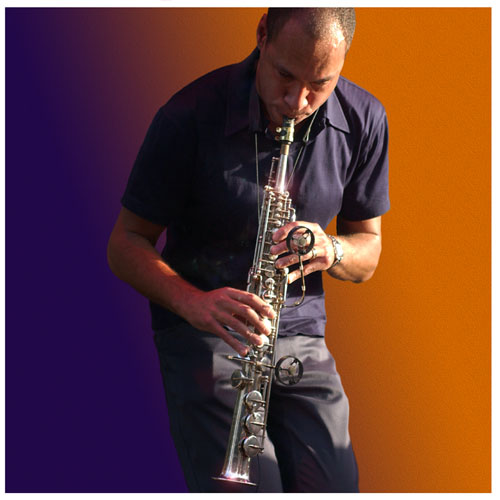
Before Joshua Redman’s “Second Snow” popped up on my iTunes randomizer, I was having a hard time coming up with a Cover for this week. It’s not that I don’t have other cover songs to write about – I have plenty. It’s just that I already knew Kalamu was doing both the Classic and the Contemporary selections as tributes to Alice Coltrane and I was trying to come up with something that would fit in with Alice’s music. “Second Snow” fits the bill. Although technically, “Second Snow” isn’t a cover. What it actually is, is a tribute to the most famous cover in jazz history. (And that’s saying a lot.) There are lots of tip-offs: Joshua plays the tune on soprano (instead of tenor) sax. It’s a waltz. The melody is very sing-songy and playful.
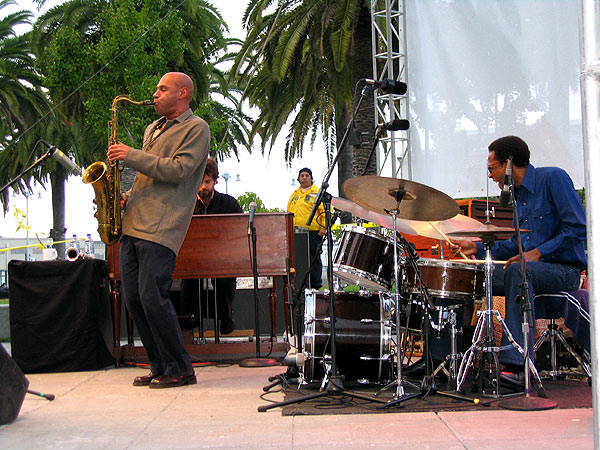
The drummer, Brian Blade, is playing like a man possessed: with quiet sensitivity when needed, but at other times, loud as hell and all over the drum kit. If those clues weren’t enough to tell you what song Joshua is paying tribute to, the moment you hear him playing in that sweet, open tone with the little upward lilt at the ends of the notes, you’ll know he’s paying tribute to John Coltrane’s version of “My Favorite Things.”
“Second Snow” is one of my favorite songs from Joshua Redman’s 2CD live album Spirit Of The Moment, but it’s only one among many great performances on the album. Joshua’s studio albums are usually good, but his live album is on an entirely different level. The intensity of the playing, the unified, organic feel of the four musicians and, of course, the energy of the audience—that ‘spirit of the moment’ the title refers to—all of it adds up to make Joshua’s live Village Vanguard recording the best release of his extensive catalog.
Back in 1995 when this album came out, I was already familiar with the other players. The drummer Brian Blade, the bassist Chris Thomas and the pianist Peter Martin had all played together for some time in a quartet led by New Orleans saxophonist Victor Goines. Victor, Chris, Peter and Brain used to light up the bandstand at Snug Harbor in New Orleans on weekly basis. (They had a version of Trane’s “Impressions” that used to blow the walls off the place…the boys were bad.) I don’t know how or why their association with Victor ended, but when the three young players teamed up with Joshua—who, at the time, was an up-and-coming ‘young lion’ in his own right—I was definitely interested in hearing the results. Their first album together was 1994’s Moodswing. (Although it was Brad Mehldau on piano, not Peter.) There were good moments, but overall, I was disappointed. While playing in Victor’s band, Brian and Chris had made a name for themselves by playing with energy, fire and passion. For the most part, Moodswing was a laid-back, ‘swingy’ session. It sounded like Joshua was trying to play ‘cool.’ But the following year, Joshua along with Brian, Chris and Peter (replacing Mehldau), released his live album and my expectations were fulfilled.
From reading other reviews of Joshua’s albums, the knock on him seems similar to the knock on Wynton Marsalis: that Joshua is technically gifted, but ‘doesn’t have anything new to say.’ I always find that criticism funny because one could make that same argument about jazz as a whole since, oh, I don’t know, 1976 or so. The way I see it, anything an artist does has to be seen in the context of time. You can’t take Joshua Redman out of 1995, put him in 1965 and say, he doesn’t have anything original to say, he’s just playing like Trane, or, he’s just playing like Sonny Rollins. In doesn’t work that way. If that were the case, we would all listen to blues from the 1950s, jazz from the 1960s, soul and reggae from the 1970s and hip-hop from the 1980s and forget the rest. Because, compared to the classics, no one has anything to say. One of Kalamu’s consistent arguments—one I happen to agree with—is that revolutionary music is a result of revolutionary movements. The reverse doesn’t hold true. In other words, there is nothing a musician can do, on their own, to create a movement. The movement comes from the people. The artist is the voice of the people, a voice which becomes more or less revolutionary as it befits the times.
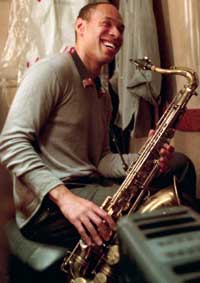
In any event, although I’d never mistake Joshua’s playing for Trane’s and while I’d never even try to argue that Joshua is on Trane’s level as a musician (and, I’d bet, neither would Joshua himself), I like what Joshua does a lot, particularly on Spirit Of The Moment. The way I hear it, Joshua’s playing is literate and modern. He isn’t simply a Trane or Rollins clone, although he does owe an obvious debt to and have an extensive knowledge of the great tenor and soprano players who've preceded him. Joshua’s fluidity is amazing—he negotiates his way through difficult series of notes with ease and soulfulness. On every track of Spirit Of The Moment, Joshua is playing live on the bandstand—there are no studio tricks going on, a la late-Sixties Miles—but in over two hours, you’ll never hear the young saxophonist miss a note or trip over himself.
I like Joshua’s technical ability, but it's the logic of his solos that holds me. Every note he plays—even when you can tell that he’s blowing as hard and fast as he can—is in perfect harmony with the note that comes before and after. Every note is part of a larger picture that he’s trying to create. For me, it’s the clear structure of Joshua’s solos that identifies him and gives him a unique voice. When he’s at his best, he makes the difficult sound easy and the impossible sound achievable.
—Mtume ya Salaam
Bonus tracks: “St. Thomas,” Joshua’s version of the classic Sonny Rollins composition; “Lyric,” a Joshua Redman original that features some of Joshua’s most inspired playing of the album and “Mt. Zion,” a tune written by drummer Brian Blade.
When Trane Came
After Bird took flight, it was thought impossible to fly higher, to go further. Bird was it, or so people thought. What or who could possibly surpass that? What about a human Trane?
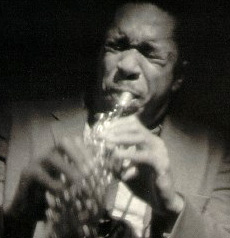
When Trane came everything else was passé. The whole scene was lifted. He was in the rearview mirror of everyone to come after him. It wasn’t just what John William Coltrane did to and for the music—both the music called jazz as well as all of twentieth century music. No. It was what Trane did for human aspirations to better oneself, to better and beautify the world.
Trane said he wanted to be a force for real good.
Trane set the bar so high in terms of human achievement that most musicians can’t see it with binoculars on a clear day from the top of their personal peaks.
That said: I know precisely why Mtume digs this. It’s not only the reasons articulated above, it’s also a matter of generations—what a sobering thought: my children (and their generation) or now middle-aged. Musically, their heroes are synthesizers, people who create their now by twisting past moments as though life were a Rubik’s Cube and the goal were simply to make all the faces match, i.e. make catchy, easy-to-recognize music.
For me, Joshua Redman’s music is a tame version of sounds I’ve heard before. Even when there are major technical differences, the spirit of the music is a rehash, but then re-makes is also the spirit of these times. The kick of jazz at its most brilliant is the sound of something new, something you’ve never heard before, totally never heard, rather than simply a variation you’ve never heard of something you’ve already heard. That is what all the jazz greats brought, and that is the breakthrough yet to be achieved by current jazz generations. Or so it seems to my biased ears.
And now for the anecdote. It was spring—no, wait a minute, actually it wasn’t. It was still winter. A small group of us drove from Carleton College in Northfield, Minnesota to Fisk University in Nashville, Tennessee. We spent our spring break there. I’m pretty sure it was March, or, if not, it was late February, well after Malcolm had been assassinated. I distinctly remember that—I was DJ-ing on the radio the awful night of the killing. That was Sunday, February 21, 1965. So this time I am thinking of was probably in March. Anyway, I was sitting in the Fisk student lounge, waiting on someone or the other and this song was playing. And, almost like someone flipped my inner switch, all the hip music lights illuminated inside me. For the first time I really heard Coltrane, heard him and fell so deeply in love, I would never recover even forty years after he died.
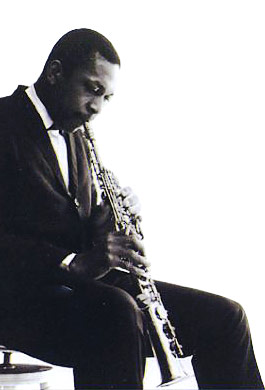
That song that opened me was Trane’s interpretation of “My Favorite Things” from the classic 1961 album of the same name. "My Favorite Things" is the same song Mtume refers to in his opening statement. Hearing that song now, it still is wonderful. Wonderful as only new love is awe-fully wonderful. I smile.
I like what Joshua Redman is doing, but, gee, I gotta tell the truth: I’m still (and always will be) in love with Trane.
—Kalamu ya Salaam
This entry was posted on Sunday, January 21st, 2007 at 4:47 am and is filed under Cover. You can follow any responses to this entry through the RSS 2.0 feed. You can leave a response, or trackback from your own site.
Leave a Reply
| top |